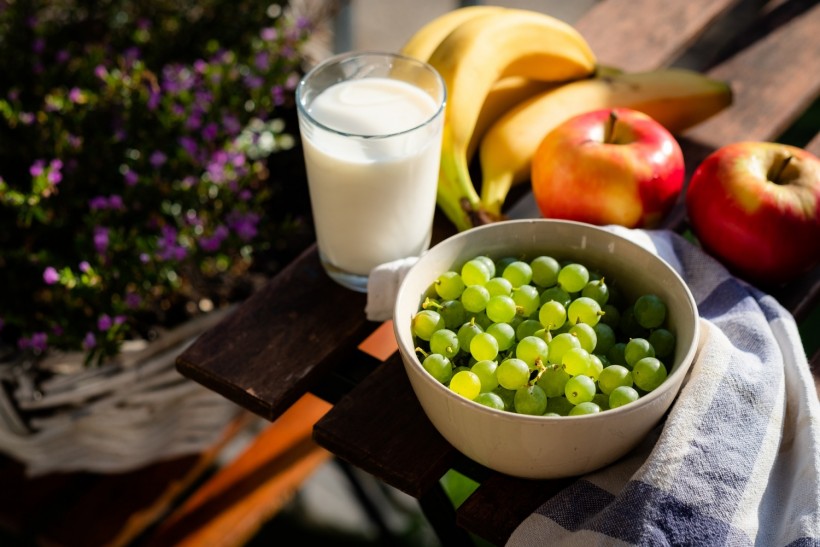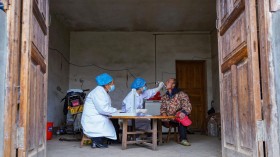It's no secret that it can be fairly challenging to have a life that is both healthy and sustainable. To live a long and healthy life, you must engage in regular physical activity, obtain adequate sleep, and consume a sufficient amount of fruit and vegetables each day. After all, what we consume has always had a profound impact on our environment.
Sadly, our modern lifestyles have had a considerable impact on our environment. Our woodlands and forests have been razed to create room for animals and agriculture. Wildlife decline and climate change are linked to food production, as around a quarter of worldwide greenhouse gas emissions are related to food. What, then, can be done?
The Current Situation
Global food shortages might lead to violence and international migration in several decades, and the effects of them are already being felt. This is mainly because of the growing scarcity of the primary resources needed to produce food and a global inability to reinvest in it. However, food ethics are a somewhat contentious and very personal matter.
In recent times, though, it has been found out that you can have a nutritious diet by just sticking to a healthy vegetarian diet. Because of this, a lot of people are moving towards veganism to support the idea of ethical food consumption. Although veganism or vegetarianism is only a diet choice, it has become much more than that and is engraved with their lifestyle.
Sales of ethically sourced products, as well as related services, make up the ethical food business. These ethically sourced foods are eco-friendly and don't add carbon emissions. It's challenging to convert your eating style over a day, but your little contribution can go a long way with patience.
How to Eat for Sustainability
It takes a lot of space, water, and fodder to raise animals for food and milk. The livestock industry alone handles over 15% of all human-made greenhouse gas emissions. Every year, the amount of meat consumed worldwide increases, clarifying that we need to shift to a more plant-based diet and limit our use of animal-based foods.
While cutting out meat and dairy products from your daily routine won't be an effortless task, you can take small steps to curb your meat consumption. Moderation is key for meat and dairy consumption for the long-term well-being of humans, animals, and our planet as a whole.
It is undeniable that animal agriculture has a considerable impact on world emissions of greenhouse gasses. However, animal husbandry is not the only source of greenhouse emissions. Transportation, electricity generation, and commercial housings are to be blamed equally.
Effective Changes Made in the Production Sector
Many changes are being made in the food sector, helping the greenhouse revolution. These include:
-
Eco-friendly companies are embracing sustainable packaging as a significant trend. In order to limit the usage of plastics and become more environmentally friendly, organic farmers are expanding their attention to environmentally friendly packaging. Packaging firms are responding to the growing demand for environmentally friendly packaging for organic food and other items.
-
Another big issue that often goes unnoticed in developing countries is food wastage. Global food production suffices to meet everyone's needs; we just need to ensure that the food reaches those who need it the most.
You can only imagine the amount of greenhouse gas emissions that might be avoided if these meals weren't wasted.
-
Shop using reusable bags, buy produce without packing, and ask businesses and merchants to switch to eco-friendly products. Then, if you can, build a small vegetable garden in your backyard. Is there anything more satisfying than picking your own food from the garden? The food you grow is devoid of harmful chemicals and helps sustain a better world.
Things are improving, but there is still a long way to go. Everyone on the earth - but especially those living in developed metropolitan areas - must alter their habits if we are to make progress. It's a team effort, and it's a goal we should all strive for.
A Focus on Progress
Recognizing the Paris climate pact and its commitment to creating a more sustainable world can also help. Furthermore, established systems can supply new farming techniques that are more environmentally friendly. By using chemical process technology, Visimix - as well as other reputable organizations - can also help innovate more sustainable foods.
These can include lab-grown meats and other eco-friendly products. More funding for research can help scientists create new items with no restrictions. But remember: Rome was not built in a day. But over time, with proper education and support from all levels of society and authority, the world can take on the green revolution for a more sustainable future for all.
© 2024 NatureWorldNews.com All rights reserved. Do not reproduce without permission.
* This is a contributed article and this content does not necessarily represent the views of natureworldnews.com






